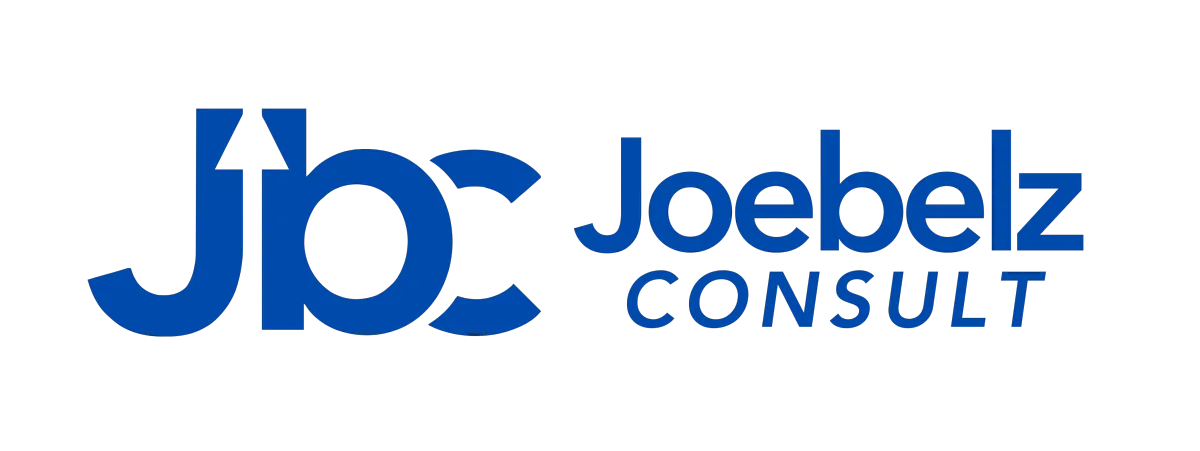Environmental Management-Leading Courses
Dive into our diverse range of high-demand courses, designed to equip you with the skills to lead, innovate, and succeed.
Introduction to Environmental Impact Assessment

Course Description:
This course provides an overview of EIA principles, processes, and its role in sustainable development. It covers the purpose, scope, and stages of EIA, emphasizing its importance in project planning and decision-making.
Target Audience:
Beginners, environmental consultants, project managers, policymakers, and students in environmental sciences.
Course Content:
1. Understanding the Purpose and Scope of EIA
2. Historical Evolution of EIA Practices
3. Key Stages of the EIA Process
4. Role of EIA in Sustainable Development
5. Global EIA Standards and Best Practices
6. Screening and Scoping in EIA
7. Introduction to EIA Methodologies
8. Case Studies of Successful EIA Applications
9. Stakeholder Roles in EIA Processes
10. Overview of EIA Documentation Requirements
11. Linking EIA to Environmental Policy
12. Challenges and Opportunities in EIA Implementation
Course Duration: Three (3) Full Days
Course Fee: N300,000
Note: The course fee covers Executive bag, Certificate, Photograph, Tea/Coffee, Lunch, and Literature materials.
EIA Methodologies and Frameworks

Course Description:
Explores various methodologies and frameworks used in EIA, including qualitative and quantitative approaches, to assess environmental impacts effectively.
Target Audience:
Environmental consultants, planners, engineers, and researchers in environmental management.
Course Content:
1. Overview of EIA Methodologies
2. Quantitative vs. Qualitative Assessment Techniques
3. Matrix and Checklist Approaches in EIA
4. Predictive Modeling for Impact Assessment
5. Life Cycle Assessment in EIA
6. Multi-Criteria Decision Analysis in EIA
7. Risk-Based EIA Frameworks
8. Application of Systems Thinking in EIA
9. Comparative Analysis of Global EIA Frameworks
10. Integrating GIS in EIA Methodologies
11. Case Studies on Methodology Application
12. Adapting Frameworks for Project-Specific Needs
Course Duration: Three (3) Full Days
Course Fee: N300,000
Note: The course fee covers Executive bag, Certificate, Photograph, Tea/Coffee, Lunch, and Literature materials.
Environmental Legislation and Compliance

Course Description:
Examines national and international environmental laws, regulations, and compliance requirements relevant to EIA, focusing on legal frameworks and enforcement.
Target Audience:
Legal professionals, environmental managers, compliance officers, and policymakers.
Course Content:
1. Introduction to Environmental Legislation
2. Key International Environmental Agreements
3. National EIA Laws and Regulations
4. Compliance Requirements for EIA Processes
5. Role of Regulatory Bodies in EIA
6. Penalties for Non-Compliance in EIA
7. Legal Frameworks for Environmental Protection
8. Case Studies on Compliance Challenges
9. Harmonizing Local and Global EIA Laws
10. Monitoring Legal Compliance in Projects
11. Emerging Trends in Environmental Law
12. Ethics and Accountability in EIA Compliance
Course Duration: Three (3) Full Days
Course Fee: N300,000
Note: The course fee covers Executive bag, Certificate, Photograph, Tea/Coffee, Lunch, and Literature materials.
Environmental Risk Assessment

Course Description:
Covers techniques for identifying, analyzing, and managing environmental risks in EIA, focusing on risk evaluation and mitigation strategies.
Target Audience:
Risk managers, environmental consultants, engineers, and safety professionals.
Course Content:
1. Fundamentals of Environmental Risk Assessment
2. Risk Identification in EIA Processes
3. Quantitative Risk Assessment Techniques
4. Qualitative Risk Assessment Approaches
5. Risk Prioritization and Ranking Methods
6. Mitigation Strategies for Environmental Risks
7. Risk Communication in EIA
8. Case Studies on Environmental Risk Management
9. Tools for Risk Modeling and Analysis
10. Integrating Risk Assessment in EIA Frameworks
11. Regulatory Requirements for Risk Assessment
12. Emerging Risk Trends in Environmental Projects
Course Duration: Three (3) Full Days
Course Fee: N300,000
Note: The course fee covers Executive bag, Certificate, Photograph, Tea/Coffee, Lunch, and Literature materials.
Biodiversity and Ecosystem Assessment

Course Description:
Focuses on assessing impacts on biodiversity and ecosystems within EIA, including methods for evaluating species, habitats, and ecosystem services.
Target Audience:
Ecologists, conservationists, environmental scientists, and project developers.
Course Content:
1. Introduction to Biodiversity in EIA
2. Assessing Impacts on Species and Habitats
3. Ecosystem Services and Their Valuation
4. Biodiversity Baseline Surveys
5. Tools for Biodiversity Impact Assessment
6. Mitigation Measures for Biodiversity Protection
7. Monitoring Biodiversity Post-Project Implementation
8. Case Studies on Biodiversity Impacts
9. Integrating Biodiversity into EIA Frameworks
10. Global Biodiversity Conservation Standards
11. Role of Stakeholders in Biodiversity Assessment
12. Addressing Cumulative Impacts on Ecosystems
Course Duration: Three (3) Full Days
Course Fee: N300,000
Note: The course fee covers Executive bag, Certificate, Photograph, Tea/Coffee, Lunch, and Literature materials.
Social Impact Assessment in EIA

Course Description:
Examines the social dimensions of EIA, including assessing impacts on communities, livelihoods, and cultural heritage, with strategies for mitigation.
Target Audience:
Sociologists, community development professionals, project planners, and EIA practitioners.
Course Content:
1. Overview of Social Impact Assessment (SIA)
2. Identifying Social Impacts in EIA
3. Methods for Community Impact Analysis
4. Assessing Impacts on Cultural Heritage
5. Stakeholder Engagement in SIA
6. Social Mitigation and Compensation Strategies
7. Monitoring Social Impacts Post-Project
8. Case Studies on Social Impact Assessments
9. Integrating SIA with Environmental Assessments
10. Ethical Considerations in SIA
11. Regulatory Frameworks for SIA
12. Community-Based Participatory Approaches
Course Duration: Three (3) Full Days
Course Fee: N300,000
Note: The course fee covers Executive bag, Certificate, Photograph, Tea/Coffee, Lunch, and Literature materials.
Environmental Monitoring and Reporting

Course Description:
Covers techniques for monitoring environmental impacts during and after project implementation, including reporting standards and data management.
Target Audience:
Environmental monitors, project managers, consultants, and regulators.
Course Content:
1. Principles of Environmental Monitoring
2. Designing Effective Monitoring Programs
3. Data Collection Techniques for EIA Monitoring
4. Environmental Performance Indicators
5. Reporting Standards for EIA Compliance
6. Real-Time Environmental Monitoring Tools
7. Case Studies on Monitoring Successes
8. Data Analysis for Monitoring Reports
9. Regulatory Requirements for Monitoring
10. Stakeholder Communication in Monitoring
11. Technology in Environmental Monitoring
12. Continuous Improvement in Monitoring Practices
Course Duration: Three (3) Full Days
Course Fee: N300,000
Note: The course fee covers Executive bag, Certificate, Photograph, Tea/Coffee, Lunch, and Literature materials.
Climate Change Impact Assessment

Course Description:
Focuses on assessing climate change impacts within EIA, including carbon footprint analysis, adaptation strategies, and resilience planning.
Target Audience:
Climate scientists, environmental planners, policymakers, and project developers.
Course Content:
1. Introduction to Climate Change in EIA
2. Assessing Carbon Footprint in Projects
3. Climate Risk and Vulnerability Analysis
4. Adaptation Strategies in EIA
5. Resilience Planning for Climate Impacts
6. Tools for Climate Impact Modeling
7. Case Studies on Climate-Responsive EIA
8. Regulatory Frameworks for Climate Assessments
9. Integrating Climate Goals in Project Planning
10. Stakeholder Roles in Climate Assessments
11. Monitoring Climate Impacts Post-Project
12. Global Climate Agreements and EIA
Course Duration: Three (3) Full Days
Course Fee: N300,000
Note: The course fee covers Executive bag, Certificate, Photograph, Tea/Coffee, Lunch, and Literature materials.
EIA for Infrastructure Projects

Course Description:
Explores EIA processes tailored for infrastructure projects like roads, bridges, and dams, addressing unique environmental and social challenges.
Target Audience:
Engineers, project managers, urban planners, and environmental consultants.
Course Content:
1. EIA Challenges in Infrastructure Projects
2. Scoping for Infrastructure EIAs
3. Assessing Environmental Impacts of Construction
4. Social Impacts of Infrastructure Development
5. Mitigation Strategies for Infrastructure Projects
6. Case Studies on Infrastructure EIAs
7. Regulatory Requirements for Infrastructure EIAs
8. Stakeholder Engagement in Infrastructure Projects
9. Monitoring Impacts During Construction
10. Integrating Sustainability in Infrastructure Planning
11. Tools for Infrastructure Impact Assessment
12. Managing Cumulative Impacts of Infrastructure
Course Duration: Three (3) Full Days
Course Fee: N300,000
Note: The course fee covers Executive bag, Certificate, Photograph, Tea/Coffee, Lunch, and Literature materials.
Environmental Management Plans

Course Description:
Covers the development and implementation of Environmental Management Plans (EMPs) to mitigate and manage impacts identified in EIAs.
Target Audience:
Environmental managers, project developers, consultants, and regulators.
Course Content:
1. Introduction to Environmental Management Plans
2. Components of an Effective EMP
3. Developing Mitigation Strategies in EMPs
4. Monitoring and Evaluation in EMPs
5. Regulatory Requirements for EMPs
6. Stakeholder Involvement in EMP Development
7. Case Studies on Successful EMPs
8. Integrating EMPs with Project Management
9. Tools for EMP Implementation
10. Reporting on EMP Performance
11. Adapting EMPs to Changing Conditions
12. Continuous Improvement in EMP Practices
Course Duration: Three (3) Full Days
Course Fee: N300,000
Note: The course fee covers Executive bag, Certificate, Photograph, Tea/Coffee, Lunch, and Literature materials.
Stakeholder Engagement in EIA

Course Description:
Focuses on effective stakeholder engagement strategies in EIA, including public consultation, conflict resolution, and communication techniques.
Target Audience:
Community liaison officers, project managers, consultants, and policymakers.
Course Content:
1. Principles of Stakeholder Engagement
2. Identifying Stakeholders in EIA Processes
3. Effective Public Consultation Techniques
4. Managing Stakeholder Expectations
5. Conflict Resolution in EIA Processes
6. Communication Strategies for Engagement
7. Case Studies on Stakeholder Engagement
8. Regulatory Requirements for Engagement
9. Tools for Stakeholder Analysis and Mapping
10. Inclusive Engagement for Diverse Communities
11. Monitoring Stakeholder Feedback
12. Ethical Considerations in Stakeholder Engagement
Course Duration: Three (3) Full Days
Course Fee: N300,000
Note: The course fee covers Executive bag, Certificate, Photograph, Tea/Coffee, Lunch, and Literature materials.
GIS in Environmental Impact Assessment

Course Description:
Explores the use of Geographic Information Systems (GIS) in EIA for spatial analysis, mapping, and impact visualization.
Target Audience:
GIS specialists, environmental planners, consultants, and data analysts.
Course Content:
1. Introduction to GIS in EIA
2. Spatial Data Collection for EIA
3. GIS Mapping for Impact Visualization
4. Analyzing Environmental Impacts with GIS
5. GIS Tools for Biodiversity Assessment
6. Case Studies on GIS Applications in EIA
7. Integrating GIS with EIA Methodologies
8. GIS for Cumulative Impact Assessment
9. Regulatory Requirements for GIS Data
10. Stakeholder Communication Using GIS Maps
11. Advanced GIS Techniques in EIA
12. Future Trends in GIS for EIA
Course Duration: Three (3) Full Days
Course Fee: N300,000
Note: The course fee covers Executive bag, Certificate, Photograph, Tea/Coffee, Lunch, and Literature materials.
Environmental Auditing and Compliance

Course Description:
Covers environmental auditing processes to ensure compliance with EIA requirements, including audit planning, execution, and reporting.
Target Audience:
Auditors, compliance officers, environmental managers, and regulators.
Course Content:
1. Fundamentals of Environmental Auditing
2. Planning an Effective Environmental Audit
3. Conducting Compliance Audits in EIA
4. Audit Reporting and Documentation
5. Regulatory Frameworks for Environmental Auditing
6. Tools for Environmental Audit Execution
7. Case Studies on Environmental Audits
8. Addressing Non-Compliance Issues
9. Stakeholder Roles in Auditing Processes
10. Continuous Improvement Through Auditing
11. Technology in Environmental Auditing
12. Ethical Considerations in Auditing
Course Duration: Three (3) Full Days
Course Fee: N300,000
Note: The course fee covers Executive bag, Certificate, Photograph, Tea/Coffee, Lunch, and Literature materials.
Cumulative Impact Assessment

Course Description:
Examines methods for assessing cumulative environmental impacts from multiple projects or activities within an EIA framework.
Target Audience:
Environmental planners, consultants, policymakers, and project developers.
Course Content:
1. Introduction to Cumulative Impact Assessment
2. Identifying Cumulative Impacts in EIA
3. Methodologies for Cumulative Impact Analysis
4. Tools for Modeling Cumulative Impacts
5. Case Studies on Cumulative Impact Assessments
6. Regulatory Requirements for Cumulative Impacts
7. Stakeholder Engagement in Cumulative Assessments
8. Mitigating Cumulative Environmental Impacts
9. Monitoring Cumulative Impacts Over Time
10. Integrating Cumulative Impacts in EIA Frameworks
11. Challenges in Cumulative Impact Assessment
12. Future Trends in Cumulative Impact Analysis
Course Duration: Three (3) Full Days
Course Fee: N300,000
Note: The course fee covers Executive bag, Certificate, Photograph, Tea/Coffee, Lunch, and Literature materials.
Strategic Environmental Assessment (SEA)

Course Description:
Introduces SEA as a tool for assessing environmental impacts of policies, plans, and programs, emphasizing its role in strategic planning.
Target Audience:
Policymakers, planners, environmental consultants, and government officials.
Course Content:
1. Overview of Strategic Environmental Assessment
2. Differences Between SEA and EIA
3. SEA in Policy and Plan Development
4. Methodologies for SEA Implementation
5. Case Studies on SEA Applications
6. Stakeholder Engagement in SEA Processes
7. Regulatory Frameworks for SEA
8. Tools for SEA Analysis and Reporting
9. Integrating Sustainability in SEA
10. Monitoring SEA Outcomes
11. Challenges in SEA Implementation
12. Global Trends in SEA Practices
Course Duration: Three (3) Full Days
Course Fee: N300,000
Note: The course fee covers Executive bag, Certificate, Photograph, Tea/Coffee, Lunch, and Literature materials.
Environmental Baseline Studies

Course Description:
Covers the design and execution of environmental baseline studies to establish pre-project environmental conditions for EIA.
Target Audience:
Environmental scientists, consultants, researchers, and project planners.
Course Content:
1. Introduction to Environmental Baseline Studies
2. Designing Baseline Study Frameworks
3. Data Collection for Baseline Studies
4. Assessing Air, Water, and Soil Conditions
5. Biodiversity Baseline Assessments
6. Case Studies on Baseline Studies
7. Tools for Baseline Data Analysis
8. Regulatory Requirements for Baseline Studies
9. Integrating Baseline Data in EIA
10. Stakeholder Involvement in Baseline Studies
11. Challenges in Baseline Data Collection
12. Ensuring Data Accuracy and Reliability
Course Duration: Three (3) Full Days
Course Fee: N300,000
Note: The course fee covers Executive bag, Certificate, Photograph, Tea/Coffee, Lunch, and Literature materials.
Air Quality Impact Assessment

Course Description:
Focuses on assessing air quality impacts in EIA, including pollutant dispersion modeling, monitoring, and mitigation strategies.
Target Audience:
Air quality specialists, environmental engineers, consultants, and regulators.
Course Content:
1. Fundamentals of Air Quality Assessment
2. Air Pollutant Sources and Impacts
3. Dispersion Modeling for Air Quality
4. Air Quality Monitoring Techniques
5. Mitigation Strategies for Air Pollution
6. Regulatory Standards for Air Quality
7. Case Studies on Air Quality Impacts
8. Tools for Air Quality Data Analysis
9. Stakeholder Communication on Air Quality
10. Integrating Air Quality in EIA Frameworks
11. Health Impacts of Air Pollution
12. Emerging Trends in Air Quality Management
Course Duration: Three (3) Full Days
Course Fee: N300,000
Note: The course fee covers Executive bag, Certificate, Photograph, Tea/Coffee, Lunch, and Literature materials.
Water Resource Impact Assessment

Course Description:
Examines methods for assessing impacts on water resources in EIA, including surface water, groundwater, and water quality analysis.
Target Audience:
Hydrologists, environmental engineers, consultants, and water resource managers.
Course Content:
1. Introduction to Water Resource Assessment
2. Assessing Impacts on Surface Water
3. Groundwater Impact Analysis in EIA
4. Water Quality Monitoring Techniques
5. Mitigation Strategies for Water Impacts
6. Regulatory Frameworks for Water Resources
7. Case Studies on Water Impact Assessments
8. Tools for Hydrological Modeling
9. Stakeholder Engagement in Water Assessments
10. Integrating Water Assessments in EIA
11. Managing Cumulative Water Impacts
12. Future Trends in Water Resource Management
Course Duration: Three (3) Full Days
Course Fee: N300,000
Note: The course fee covers Executive bag, Certificate, Photograph, Tea/Coffee, Lunch, and Literature materials.
Soil and Land Use Impact Assessment

Course Description:
Covers techniques for assessing impacts on soil and land use in EIA, including soil erosion, contamination, and land use change analysis.
Target Audience:
Soil scientists, land use planners, environmental consultants, and project developers.
Course Content:
1. Overview of Soil and Land Use Assessment
2. Assessing Soil Erosion and Degradation
3. Soil Contamination Analysis in EIA
4. Land Use Change and Its Impacts
5. Mitigation Strategies for Soil Impacts
6. Regulatory Requirements for Land Use
7. Case Studies on Soil Impact Assessments
8. Tools for Soil and Land Use Analysis
9. Stakeholder Roles in Land Use Planning
10. Integrating Soil Assessments in EIA
11. Monitoring Soil and Land Use Impacts
12. Sustainable Land Use Practices
Course Duration: Three (3) Full Days
Course Fee: N300,000
Note: The course fee covers Executive bag, Certificate, Photograph, Tea/Coffee, Lunch, and Literature materials.
Waste Management in EIA

Course Description:
Focuses on assessing and managing waste-related impacts in EIA, including waste generation, disposal, and recycling strategies.
Target Audience:
Waste management professionals, environmental consultants, and project managers.
Course Content:
1. Introduction to Waste Management in EIA
2. Assessing Waste Generation in Projects
3. Waste Disposal Impact Analysis
4. Recycling and Waste Minimization Strategies
5. Regulatory Frameworks for Waste Management
6. Case Studies on Waste Impact Assessments
7. Tools for Waste Data Analysis
8. Stakeholder Engagement in Waste Management
9. Integrating Waste Management in EIA
10. Monitoring Waste Impacts Post-Project
11. Sustainable Waste Management Practices
12. Emerging Trends in Waste Management
Course Duration: Three (3) Full Days
Course Fee: N300,000
Note: The course fee covers Executive bag, Certificate, Photograph, Tea/Coffee, Lunch, and Literature materials.
Environmental Economics in EIA

Course Description:
Explores the economic aspects of EIA, including cost-benefit analysis, valuation of environmental impacts, and economic mitigation strategies.
Target Audience:
Economists, environmental planners, consultants, and policymakers.
Course Content:
1. Fundamentals of Environmental Economics
2. Cost-Benefit Analysis in EIA
3. Valuing Environmental Impacts
4. Economic Mitigation Strategies
5. Regulatory Frameworks for Environmental Economics
6. Case Studies on Economic Assessments
7. Tools for Economic Impact Analysis
8. Stakeholder Roles in Economic Assessments
9. Integrating Economics in EIA Frameworks
10. Monitoring Economic Impacts of Projects
11. Sustainable Development and Economic Analysis
12. Emerging Trends in Environmental Economics
Course Duration: Three (3) Full Days
Course Fee: N300,000
Note: The course fee covers Executive bag, Certificate, Photograph, Tea/Coffee, Lunch, and Literature materials.
Public Consultation in EIA Processes

Course Description:
Covers strategies for effective public consultation in EIA, including communication, participation, and addressing public concerns.
Target Audience:
Community engagement officers, project managers, consultants, and policymakers.
Course Content:
1. Principles of Public Consultation in EIA
2. Designing Effective Consultation Programs
3. Communication Strategies for Public Engagement
4. Managing Public Concerns and Feedback
5. Regulatory Requirements for Consultation
6. Case Studies on Public Consultation Successes
7. Tools for Public Participation Analysis
8. Inclusive Consultation for Diverse Groups
9. Monitoring Public Feedback in EIA
10. Ethical Considerations in Public Consultation
11. Stakeholder Mapping for Consultation
12. Future Trends in Public Engagement
Course Duration: Three (3) Full Days
Course Fee: N300,000
Note: The course fee covers Executive bag, Certificate, Photograph, Tea/Coffee, Lunch, and Literature materials.
EIA for Renewable Energy Projects

Course Description:
Focuses on EIA processes for renewable energy projects, such as wind, solar, and hydropower, addressing environmental and social impacts.
Target Audience:
Renewable energy professionals, environmental consultants, and project developers.
Course Content:
1. Introduction to EIA for Renewable Energy
2. Assessing Impacts of Wind Energy Projects
3. Solar Energy Project Impact Analysis
4. Hydropower and Its Environmental Impacts
5. Mitigation Strategies for Renewable Projects
6. Regulatory Frameworks for Renewable EIAs
7. Case Studies on Renewable Energy EIAs
8. Stakeholder Engagement in Renewable Projects
9. Monitoring Impacts of Renewable Projects
10. Integrating Sustainability in Renewable EIAs
11. Tools for Renewable Energy Impact Assessment
12. Future Trends in Renewable Energy EIAs
Course Duration: Three (3) Full Days
Course Fee: N300,000
Note: The course fee covers Executive bag, Certificate, Photograph, Tea/Coffee, Lunch, and Literature materials.
Coastal and Marine Impact Assessment

Course Description:
Examines EIA processes for coastal and marine environments, focusing on impacts on marine ecosystems, fisheries, and coastal communities.
Target Audience:
Marine biologists, coastal planners, environmental consultants, and regulators.
Course Content:
1. Introduction to Coastal and Marine EIA
2. Assessing Impacts on Marine Ecosystems
3. Impacts on Fisheries and Coastal Communities
4. Tools for Marine Impact Assessment
5. Mitigation Strategies for Coastal Projects
6. Regulatory Frameworks for Marine EIAs
7. Case Studies on Coastal Impact Assessments
8. Stakeholder Engagement in Marine EIAs
9. Monitoring Coastal and Marine Impacts
10. Integrating Marine Assessments in EIA
11. Managing Cumulative Marine Impacts
12. Future Trends in Coastal EIA
Course Duration: Three (3) Full Days
Course Fee: N300,000
Note: The course fee covers Executive bag, Certificate, Photograph, Tea/Coffee, Lunch, and Literature materials.
Environmental Data Analysis

Course Description:
Covers techniques for collecting, analyzing, and interpreting environmental data in EIA, including statistical and modeling tools.
Target Audience:
Data analysts, environmental scientists, consultants, and researchers.
Course Content:
1. Fundamentals of Environmental Data Analysis
2. Data Collection Techniques for EIA
3. Statistical Analysis in Environmental Studies
4. Modeling Tools for Impact Assessment
5. Data Visualization for EIA Reporting
6. Case Studies on Data Analysis in EIA
7. Regulatory Requirements for Data Accuracy
8. Integrating Data Analysis in EIA Frameworks
9. Stakeholder Communication of Data Findings
10. Tools for Environmental Data Management
11. Challenges in Environmental Data Analysis
12. Future Trends in Data-Driven EIA
Course Duration: Three (3) Full Days
Course Fee: N300,000
Note: The course fee covers Executive bag, Certificate, Photograph, Tea/Coffee, Lunch, and Literature materials.
EIA Report Writing and Documentation

Course Description:
Focuses on preparing high-quality EIA reports, including structure, content, and documentation standards for regulatory compliance.
Target Audience:
Environmental consultants, report writers, project managers, and regulators.
Course Content:
1. Principles of EIA Report Writing
2. Structure of an Effective EIA Report
3. Key Components of EIA Documentation
4. Regulatory Standards for EIA Reports
5. Writing Clear and Concise Impact Assessments
6. Case Studies on High-Quality EIA Reports
7. Tools for Report Writing and Editing
8. Stakeholder Communication Through Reports
9. Addressing Reviewer Feedback on Reports
10. Ensuring Compliance in EIA Documentation
11. Visual Aids in EIA Reporting
12. Best Practices in EIA Documentation
Course Duration: Three (3) Full Days
Course Fee: N300,000
Note: The course fee covers Executive bag, Certificate, Photograph, Tea/Coffee, Lunch, and Literature materials.
Mitigation and Offset Strategies

Course Description:
Explores strategies for mitigating environmental impacts and implementing offset programs to compensate for unavoidable impacts in EIA.
Target Audience:
Environmental managers, consultants, project developers, and policymakers.
Course Content:
1. Introduction to Mitigation in EIA
2. Designing Effective Mitigation Strategies
3. Principles of Environmental Offsetting
4. Regulatory Requirements for Mitigation
5. Case Studies on Successful Mitigation
6. Tools for Mitigation Planning and Monitoring
7. Stakeholder Roles in Mitigation Strategies
8. Integrating Mitigation in EIA Frameworks
9. Monitoring Mitigation Effectiveness
10. Challenges in Implementing Offsets
11. Sustainable Mitigation Practices
12. Future Trends in Mitigation and Offsetting
Course Duration: Three (3) Full Days
Course Fee: N300,000
Note: The course fee covers Executive bag, Certificate, Photograph, Tea/Coffee, Lunch, and Literature materials.
Environmental Impact Modeling

Course Description:
Covers modeling techniques for predicting environmental impacts in EIA, including tools for simulation and scenario analysis.
Target Audience:
Modelers, environmental scientists, consultants, and data analysts.
Course Content:
1. Fundamentals of Environmental Impact Modeling
2. Tools for Predictive Impact Modeling
3. Scenario Analysis in EIA Modeling
4. Modeling Air and Water Impacts
5. Biodiversity Impact Modeling Techniques
6. Case Studies on Impact Modeling
7. Regulatory Requirements for Modeling
8. Integrating Models in EIA Frameworks
9. Stakeholder Communication of Modeling Results
10. Challenges in Environmental Modeling
11. Advances in Modeling Technology
12. Future Trends in Impact Modeling
Course Duration: Three (3) Full Days
Course Fee: N300,000
Note: The course fee covers Executive bag, Certificate, Photograph, Tea/Coffee, Lunch, and Literature materials.
Health Impact Assessment in EIA

Course Description:
Examines the integration of health impact assessments in EIA, focusing on public health risks and mitigation strategies.
Target Audience:
Public health professionals, environmental consultants, and project planners.
Course Content:
1. Introduction to Health Impact Assessment (HIA)
2. Identifying Health Risks in EIA
3. Assessing Air and Water-Related Health Impacts
4. Social Determinants of Health in EIA
5. Mitigation Strategies for Health Impacts
6. Regulatory Frameworks for HIA
7. Case Studies on Health Impact Assessments
8. Tools for Health Impact Analysis
9. Stakeholder Engagement in HIA
10. Integrating HIA with EIA Processes
11. Monitoring Health Impacts Post-Project
12. Emerging Trends in Health Impact Assessment
Course Duration: Three (3) Full Days
Course Fee: N300,000
Note: The course fee covers Executive bag, Certificate, Photograph, Tea/Coffee, Lunch, and Literature materials.
Sustainable Development and EIA

Course Description:
Explores the role of EIA in promoting sustainable development, integrating environmental, social, and economic considerations.
Target Audience:
Sustainability professionals, policymakers, environmental planners, and consultants.
Course Content:
1. Introduction to Sustainable Development in EIA
2. Linking EIA with Sustainability Goals
3. Assessing Environmental Sustainability
4. Social Sustainability in EIA Processes
5. Economic Sustainability and EIA
6. Regulatory Frameworks for Sustainable EIA
7. Case Studies on Sustainable Development in EIA
8. Tools for Sustainability Assessment
9. Stakeholder Roles in Sustainable EIA
10. Monitoring Sustainability Outcomes
11. Challenges in Sustainable EIA Implementation
12. Future Trends in Sustainable Development
Course Duration: Three (3) Full Days
Course Fee: N300,000
Note: The course fee covers Executive bag, Certificate, Photograph, Tea/Coffee, Lunch, and Literature materials.
Want to work with us?
Let’s create impact together — training, strategy, and results that drive success.
Get in touch today.

COMPANY
CUSTOMER CARE
FOLLOW US
Location: 2nd Floor, Landmark House, Isaac John Street, GRA-Ikeja, Lagos, Nigeria
Phone: +2347067313088
Email: [email protected]
Copyright (2025) Joebelz Consult. All Rights Reserved.